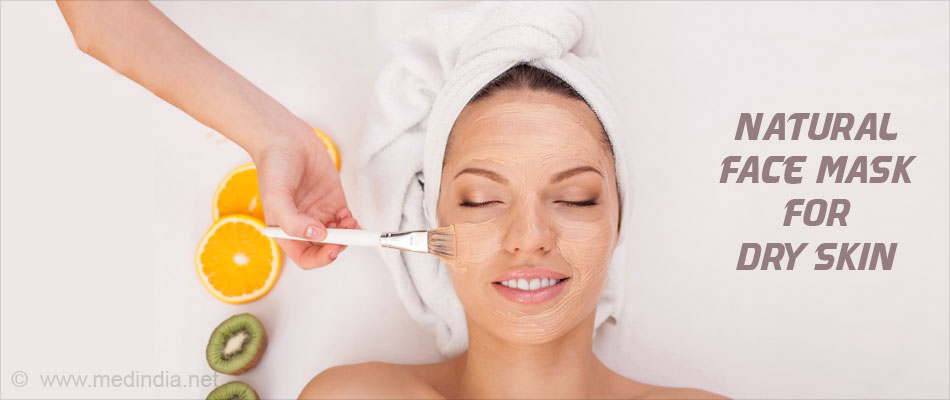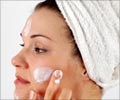- Dry skin Definition - (http://www.mayoclinic.org/diseases-conditions/dry-skin/basics/definition/con-20030009)
- Dry skin Overview - (https://www.aad.org/public/diseases/dry-sweaty-skin/dry-skin)
- What is Dry Skin? - (http://www.americanskin.org/resource/dryskin.php)
- 9 Ways to Banish Dry skin - (http://www.health.harvard.edu/staying-healthy/9-ways-to-banish-dry-skin)
What is Dry Skin?
The largest and heaviest organ of the human body is the integumentary system, more commonly known as the skin. It forms the outermost barrier of our body and protects it from damage, infections and injuries. It is important to take care of your skin and keep it healthy as it is the first tier of defense for our body.
However, in the rigmarole of daily life, most people do not take adequate steps to take care of their skin, and this, results in one of the most common ailments- dry skin.

Dry skin is mostly a painless condition that is scientifically known as xerosis. It is characterized by rough and flaky skin that has lost its moisture. Dry skin can affect persons of any age right from young children to the elderly. It can be genetic or the result of lifestyle choices or environmental factors. Dry skin can be seen on any part of the body ranging from the face to the abdomen and the legs or the back. It doesn’t pose a serious problem, but it may be a warning symptom of an underlying serious diseases like hyperthyroidism, malnutrition or even diabetes. Dry skin is often challenging to treat and hence, it is always better to maintain a healthy dry skin care regime.
What are the Causes of Dry Skin?
Dry skin could be either due to genetic or external causes. The wrinkled and uncomfortable rough skin is a result of the top most layer of the skin - epidermis, losing its moisture. Low lipid or water content in the skin leads to this dryness.
External causes of dry skin include the following:
- Excessive and frequent washing of hands with soaps
- Dry air that is low in humidity, which can steal the moisture from your skin. This is the reason why more people develop dry skin during winter season.
- The changes in metabolism and hormonal balance due to aging, which can induce dry skin in the elderly.
- Steamy showers or bathing with hot water for prolonged durations

While there is not much hope for hereditary conditions like ichthyosis (genetic skin disorder), environmental causes can be kept at bay with by using a good moisturizer for dry skin.
What are the Symptoms of Dry Skin?
Most people suffer from dry skin during winters, but for some others, it is a chronic condition that has the following symptoms and signs:
- Uncomfortable and rough looking skin
- Feeling of tightness
- Dry peeling skin
- Fine lines and/or wrinkles, especially as one ages
- Redness
- Dry cracked skin that may also bleed.
- Dry itchy skin

How do you Treat Dry Skin?
If lifestyle changes and use of moisturizer for dry skin does not lead to any improvement in the condition of your skin, then you must visit a dermatologist. The following remedies for dry skin have proven to be effective if practiced consistently:
- Take shorter baths, preferably 5-10 minutes long, with warm water (avoiding extreme hot temperatures that will dehydrate the skin)
- Ensure that your soap is not harsh and does not deplete the lipid content from the skin
- Gently massage your skin with a lotion for dry skin right after your bath. This will seal the moisture in your skin cells
- For more severe cases of dry skin, use creamy and thick moisturizers like petroleum jelly
- Avoid scratching dry skin patches as it will further aggravate the condition. Rather, gently rub the area to feel better.
- Avoid using skin scrubbers and other abrasive items that are used for deep cleansing of the skin while suffering from dry skin.
- Some people vouch for the hydrating prowess of milk. Take luke warm milk in a bowl and dip a cloth in it, and gently dab it over the skin. The richness and cream in the milk will work its way into your skin and moisturize it from within.
- Try using a face mask for dry facial skin, that will replenish the nutrients and pliability of the skin.

What are the Complications of Dry Skin?
Overlooking dry skin care can be the stepping stone to dry skin-associated diseases like eczema (itchy, red skin caused by inflammation). The symptoms of eczema include extremely dry skin accompanied with inflammation, redness and cracking. In more severe cases, the cracks can go deep enough to disrupt skin capillaries and cause bleeding and pain. The cracks in the skin also make the area vulnerable and an entry point for bacteria causing skin infections. The infection may result in swelling, pus and redness that may need antibiotics.
How Do You Prevent Dry Skin?
A glowing and healthy skin is desired by all. Dry facial skin can be a put off for others and uncomfortable for oneself. It is thus better to prevent the onset of dry skin than cure it. Most people moisturize only their face and hands, ignoring the body. One should moisturize the entire body to avoid dry skin on the legs, feet and back. Try overnight moisturizing therapies that include a warm water bath and then using a good moisturizer while the skin is still damp. Seal in the moisture in the pockets of the skin using this method. Wake up to a relaxed and hydrated exterior.
Dry Skin Care Tips
- Use coconut or almond oil instead of a moisturizer to lock in serious moisture that lasts all day long.
- Avoid going out in harsh weathers and extreme temperatures that rob the skin of its moisture. Wear protective clothing and layers to avoid exposure to the environment.
- Drink at least 3 litres of fluids each day
- Have juicy fruits or vegetables like cucumber at least 2-4 times a day.

Lifestyle Remedies for Dry Skin
- Stay well hydrated
- Avoid wearing clothes made of wool or similar materials that may irritate the skin
- Avoid living in areas with extreme winters and less humidity
Foods to Avoid and Include for Dry Skin:
Research indicates that certain food items have the potential to reduce the appearance and symptoms of dry skin rash and spots. A healthy diet addresses the root cause of dry skin by fortifying the skin.
- Foods like fish and nuts are rich in omega3 fatty acids and boost healthy skin growth. Avocados and olive oil are a rich source of vitamin E that is considered to be the vitamin for dry skin.
- The water content in vegetables like cucumbers also help combat the problem of dry skin effectively.
- Avoid having too much of beverages like tea, coffee and alcohol as they force the water out of the body, adding to dehydration and dryness.








